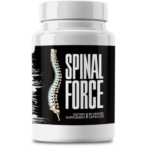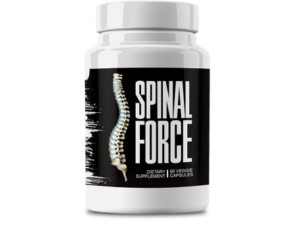This Village-Made Chinese Pain Reliever Eliminates Back And Joint Pain!
Muscle Weakness and Joint Pain: Exercises to Avoid & Try

Muscle Weakness and Joint Pain: Exercises That Help (And What to Skip)
If muscle weakness and joint pain are making your everyday movements a struggle, take comfort - you're in good company. Millions know exactly how you feel. The silver lining? Movement can actually be your best ally for managing these symptoms... if you choose the right kind. Let's walk through which exercises might be doing more harm than good, and which ones can help you rebuild strength and mobility without the ache.
Why Your Muscles and Joints Might Be Protesting
That frustrating combo of weak muscles and achy joints doesn't happen without reason. Whether it's aging, an old injury, or conditions like arthritis acting up, understanding what's going on helps you make smarter choices about staying active.
The Usual Suspects Behind the Pain
Several culprits could be at play:
- Arthritis: That persistent inflammation slowly wears down your joint cushioning.
- Too much couch time: Weak muscles mean your joints pull double duty.
- Overdoing it: Whether from repetitive motions or that weekend warrior moment.
- Autoimmune issues: Conditions like lupus don't play fair with your pain signals.
- Missing nutrients: Low on vitamin D or magnesium? Your muscles notice.
Your Body's Warning Signs
Don't ignore these early alerts:
- Joints that creak like an old door in the morning
- Simple tasks like opening jars or climbing stairs becoming mini-battles
- Puffiness or tenderness around joints
- Muscles that throw in the towel after light activity
Exercise: Friend or Foe?
Here's the deal - movement can be healing or harmful, depending on how you do it. Low-impact activities strengthen your body's natural support system, while the wrong moves can speed up damage. It's all about finding that sweet spot.
Workouts That Might Be Working Against You
Some exercises deserve a permanent "skip" button when you're dealing with muscle and joint issues.
High-Impact Trouble Makers
These jarring activities are like earthquakes for your joints:
- Pavement pounding: That concrete sidewalk isn't doing your knees any favors.
- Jump drills: The landing impact isn't worth the burn.
- Collision sports: Your joints didn't sign up for bumper cars.
When Heavy Lifting Goes Wrong
Going too hard with weights can:
- Push already struggling muscles past their limit
- Create awkward movement patterns that misalign joints
- End in painful pops or tears
The Stretching Paradox
While flexibility is great, there's such a thing as too much:
- Overstretched ligaments can't properly support joints
- Inflamed tissues don't appreciate being tugged
- Your muscles might rebel with spasms
Joint-Friendly Moves That Actually Help
The right exercises build strength without the backlash. Here's your new go-to list.
Cardio That Won't Kill Your Joints
Gentle movement gets your blood pumping without the punishment:
- Walking: Start small - even 10 minutes counts.
- Water workouts: Let buoyancy take the weight off.
- Cycling: Spin your way to stronger legs without the impact.
Strength Training That Makes Sense
Quality over quantity wins here:
- Lighter weights with more reps (12-15 per set)
- Engage that core like your spine depends on it (because it does)
- Slow, controlled movements beat rushed reps every time
Smart Stretching for Real Mobility
Improve flexibility without the ouch:
- Modified yoga (no pretzel poses required)
- Tai chi's graceful flows
- Simple dynamic moves like arm circles or gentle lunges
Stretching Done Right for Achy Joints
Strategic stretching keeps you moving without crossing into danger territory.
Must-Try Stretches
Add these to your daily routine:
- Seated reach: Extend one leg and gently reach toward your toes.
- Shoulder rolls: Melt away that upper body tension.
- Ankle ABCs: Trace letters with your toes to keep ankles mobile.
When to Stretch? Timing Is Everything
Get the most from your stretches:
- Before workout: Dynamic moves to wake up muscles
- After workout: Hold stretches briefly to cool down
Stretching Mistakes That Backfire
Avoid these common pitfalls:
- The bounce-and-ouch method (just don't)
- Holding your breath defeats the purpose
- Stretching cold muscles is like bending cold plastic
Strength Training Tweaks for Sensitive Joints
Small adjustments make big differences in protecting your joints.
Why Resistance Bands Rock
These stretchy helpers offer:
- Customizable tension
- Smooth resistance throughout movements
- Easier on wrists and elbows
No-Equipment Strength Moves
Effective exercises without the gear:
- Wall push-ups (shoulder-friendly version)
- Seated leg lifts (quads without knee stress)
- Bridge pose (hello, glutes and hamstrings)
Finding Your Training Sweet Spot
Balance is key:
- 2-3 strength sessions weekly with rest between
- Daily gentle movement keeps things fluid
- Learn to read your body's signals - some days are for rest
Why Rest Isn't Just Being Lazy
Your body does its best healing when you're not pushing it.
Signs You're Overdoing It
Heed these warnings:
- Pain that overstays its welcome post-workout
- New or increased swelling
- Unusual fatigue that lingers
How Much Downtime Do You Really Need?
Recovery isn't one-size-fits-all:
- 48 hours after intense strength work
- 24 hours post light cardio
- Extra time during flare-ups isn't optional
Sleep - Your Secret Recovery Weapon
While you're catching Z's:
- Growth hormone repairs muscle tissue
- Inflammation dials down
- Joints get their lubrication topped up
Beyond Exercise: Supporting Your Joints Daily
What you do outside the gym matters just as much.
Eating to Ease Inflammation
Load up on these:
- Fatty fish (nature's anti-inflammatory)
- Colorful berries packed with antioxidants
- Turmeric or ginger tea for a soothing sip
Why Water Matters for Joints
Hydration helps by:
- Keeping joint lubricant topped up
- Flushing out inflammatory troublemakers
- Keeping muscle cramps at bay
Stress Less, Hurt Less
Chronic tension amplifies pain. Try:
- Guided meditation (there's an app for that)
- Deep breathing (it's free and always available)
- Epsom salt baths (magnesium boost plus relaxation)
Wrapping It Up
Managing muscle weakness and joint pain isn't about giving up movement - it's about moving smarter. By swapping high-impact exercises for gentler alternatives, strength training wisely, and supporting your body with good recovery habits, you can stay active without paying for it later. Remember: Slow progress still moves you forward. And always check with your doctor or physical therapist before starting new routines, especially with existing conditions.
Quick Recap:
- Trade jarring cardio for swimming, walking, or cycling
- Build strength safely with bands or bodyweight moves
- Rest days and quality sleep aren't optional extras
- Pair movement with anti-inflammatory foods and stress relief
Found an exercise that works wonders for your joint pain? We'd love to hear about it - drop your experience in the comments!








